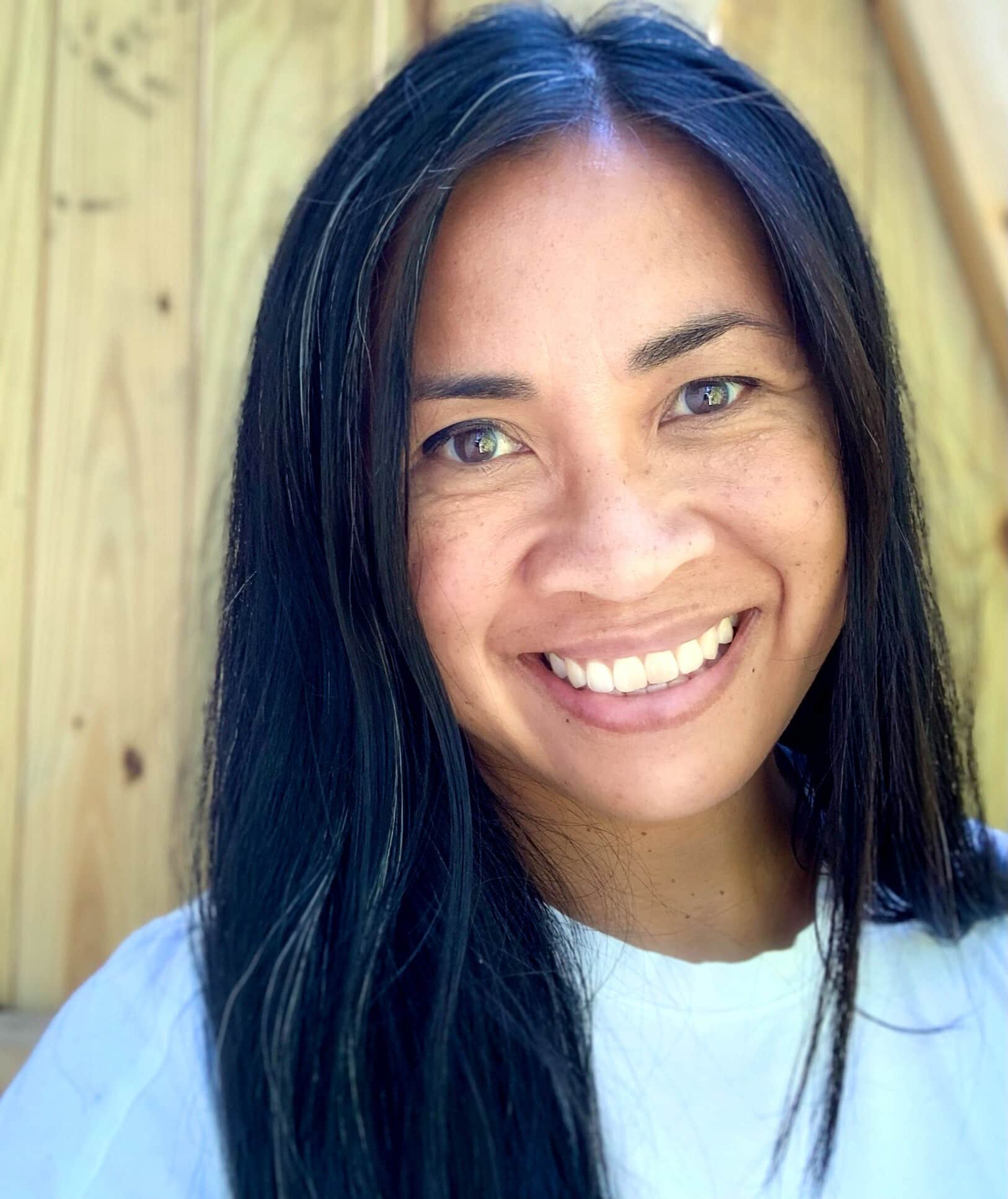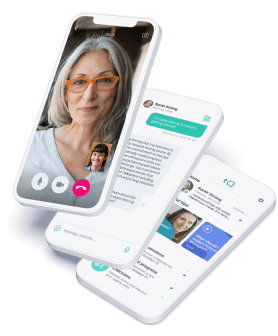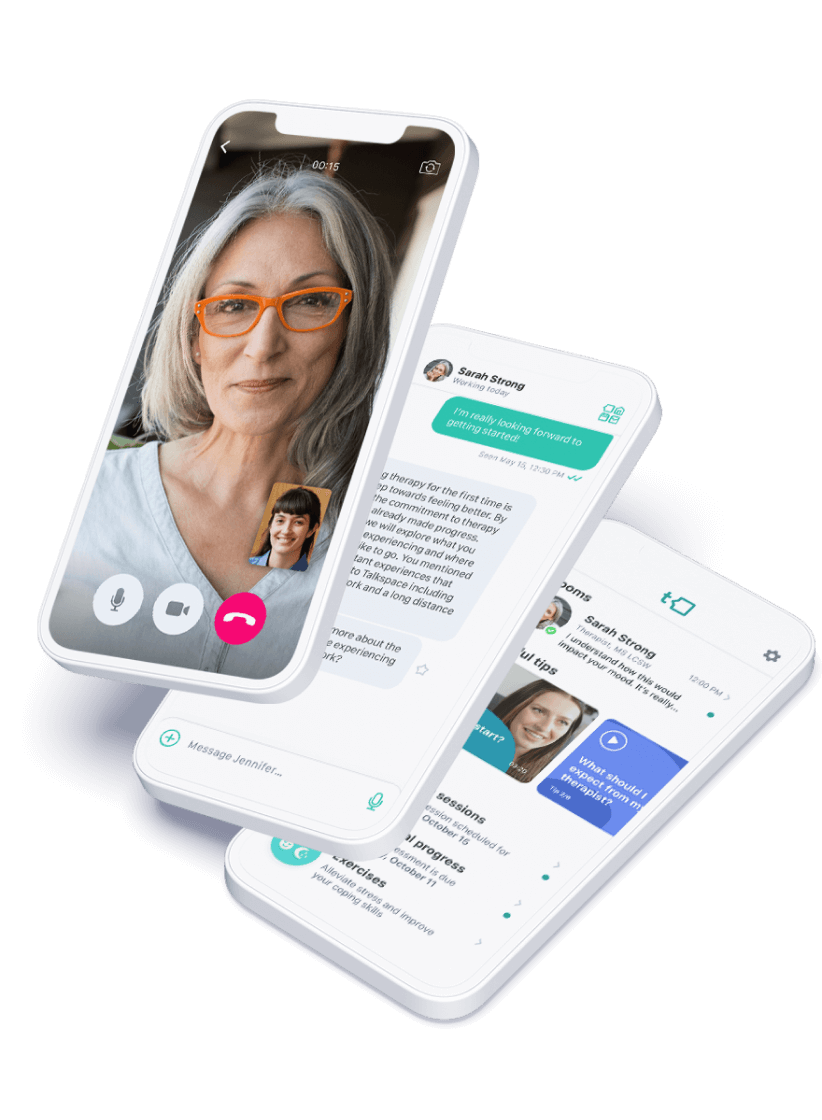Updated On: July 1, 2024
Overview
Updated on 3/09/2023
While periodic anxiety is a normal — and even healthy — biological response to life stressors (for example, like going on a first date), severe anxiety can become debilitating and lead to further mental health conditions if unaddressed.
The good news is anxiety is highly treatable whether you have generalized anxiety disorder, panic disorder, a specific phobia, or another type of anxiety. Various types of psychotherapy (also known as talk therapy) are regularly used as successful anxiety treatment. Further, each has case-specific benefits. Often, anxiety medication can be used in conjunction with therapy to benefit people who are battling overwhelming and severe anxiety.
Here, we’re examining three effective forms of therapy for anxiety disorders: Cognitive Behavioral Therapy (CBT), Dialectical Behavioral Therapy (DBT), and Exposure Therapy. It’s estimated that anxiety might affect as much as 19% of the general population, which means effective anxiety treatment is not just beneficial but often extremely necessary.
3 Best Types of Therapy for Anxiety
When it comes to how to help someone with anxiety, mental health professionals use a variety of therapeutic approaches to help patients. It is first important to understand how to diagnose anxiety. Once this is considered then the choice of which therapy to use depends on your specific symptoms, how severe your anxiety is, your temperament, and if you are an adult vs. a child. Anxiety in children can differ from anxiety in adults.
Once your therapist has this information, they may recommend one of the following types of therapy for anxiety.
1. Cognitive Behavioral Therapy
Cognitive Behavioral Therapy (CBT) is proven to be helpful for multiple anxiety disorders, and it’s one of the most commonly used types of anxiety therapy available. Cognitive therapy is based on teaching you to understand that your thoughts are causing your feelings, not the particular situation at hand.
How does CBT work for anxiety?
CBT aims to help you identify and analyze how your behaviors and negative thoughts impact and affect your life. It allows you to then replace those unhealthy patterns with productive behaviors and positive thoughts. Once you begin to anticipate and understand what triggers your anxiety symptoms, you’ll find that you’re able to naturally develop coping skills to ward off fear, worry, and apprehension.
“With the help of cognitive behavioral approach, one can better understand what emotions may drive or trigger our behaviors. Taking time to reflect on sources of anxiety and imagined fear teaches us how to reframe an anxious mindset, while allowing a more grounded response, integral to mindful coping.”
 Licensed Certified Social Worker-Clinical, (LCSW-C), LICSW, MSW Elizabeth Keohan
Licensed Certified Social Worker-Clinical, (LCSW-C), LICSW, MSW Elizabeth Keohan
2. Exposure Therapy
Exposure therapy is one of the most commonly used types of therapy for PTSD, social anxiety disorder, and phobias. Exposure therapy is based on facing what makes you apprehensive head-on and learning what’s causing you to feel so anxious. During a therapy session, you’re gradually subjected to situations or objects that cause your anxiety.
How does exposure therapy work for anxiety?
Exposure therapy involves three steps of systematic desensitization, which are:
- Combating mental and physical symptoms with intentional mindfulness and relaxation techniques, like guided imagery, meditation, and deep breathing exercises for anxiety (pranayama).
- Writing out a detailed list of what makes you feel anxious and then ranking them in severity.
- Gradually — with the guidance of a licensed therapist — exposing yourself to stimuli that cause you anxiety and then utilizing the techniques you’ve learned to cope with the feelings.
There are various methods a therapist might choose to help you face your triggers including imaginal exposure, in-vivo exposure, and virtual reality exposure, which combines in-vivo and imaginal exposure.
3. Dialectical Behavioral Therapy
Dialectical Behavioral Therapy (DBT) is a type of CBT known to be highly effective for helping people cope with anxiety and various other challenges. It emerged as a method for treating borderline personality disorder and has since become a mainstream approach for treating consistent feelings of worry, self-doubt, intense fear, and apprehension.
How does dialectical behavioral therapy work for anxiety?
Dialectical behavioral therapy is focused on four principles:
- Mindfulness is the main principle used in dialectical behavior therapy. Being mindful is an art that requires diligent practice throughout life. It develops stronger and stronger with time. It teaches you to be aware of your emotions, thoughts, behaviors, environment, and people around you, all at the same time. Mindfulness is about being aware.
- Distress tolerance in dialectical behavioral therapy teaches you how to manage anxiety symptoms as they arise in stressful situations.
- Interpersonal effectiveness training teaches you to set limits, to say no, and to stand up for yourself in a confident, fair manner.
- Emotion regulation teaches you to contain negative emotions as you see them developing. Even if you’re amid intense anxiety, the key is to recognize and take action to manage your emotions.
DBT for anxiety teaches you to accept yourself for who you are and the way that you are while you’re making improvements in certain areas. You’ll learn to have a “dialectical” (reverse) outlook on what triggers your anxiety. Essentially, this allows you to experience a trigger, analyze it, and take immediate counteractions to abolish it.
Sometimes, medication for anxiety can work well to boost and complement the benefits of therapy for anxiety. However, in the long term, the tools taught in a therapy session tend to be far superior to chronic pharmaceutical use. Therapy offers you specific, concrete, and effective ways to self-manage symptoms of your anxiety, so you don’t have to rely on anxiety medication to disguise or numb them.
Online therapy for anxiety
Get support for anxiety fast and reach a calmer mindset. Therapy for anxiety is covered by most insurance plans.
What is the Best Therapy for Anxiety?
What is the best therapy for anxiety? While anxiety therapy is very effective, which type is going to work for you will depend on several things. Therapy isn’t a one-size-fits-all deal. How to treat anxiety depends on you, your mental and physical symptoms, the severity, and the overall situation at hand. Every person who experiences anxiety does so uniquely. The common goal of any of the types of therapy for anxiety is to help you understand your feelings and become better at identifying your triggers so you can learn what to do differently to reduce and deal with anxiety.
“Therapy offers permission to release the burden of anxiety. Anxiety can range from mild to severe, but it can be more difficult to manage if it’s not shared or discussed externally. Joining with professional support helps impart a better sense of control and even invites the possibility of relief and a space for joy, instead of feeling chained to shame.”
 Licensed Certified Social Worker-Clinical, (LCSW-C), LICSW, MSW Elizabeth Keohan
Licensed Certified Social Worker-Clinical, (LCSW-C), LICSW, MSW Elizabeth Keohan
If you experience excessive, intense fear, worry, or anxiousness regularly, you may be dealing with a generalized anxiety disorder or another mental health condition altogether (obsessive compulsive disorder, panic disorder, or panic attacks may be culprits). If your anxiety is interfering with your ability to function, it’s important that you address it as soon as possible. Without treatment, symptoms of anxiety will likely continue to intensify with time.
Start Online Therapy for Anxiety Through Talkspace
Talkspace provides therapy for anxiety in a convenient, productive, and effective manner. Our approach to mental health and healing is changing the way you think and feel about therapy overall. Licensed, experienced Talkspace therapists can help you address and overcome the anxiety you long to be free from. Online therapy can offer a safe space for you to begin your healing journey in the comfort of your own home or wherever is convenient for you.
Don’t let your anxiety interfere with your life another day. Reach out to learn more how to deal with anxiety with Talkspace’s help. We can help you, too.
See References
-
Any Anxiety Disorder
National Institute of Mental Health (NIMH). Accessed February 3, 2022.
-
Lifetime Prevalence of Mental Disorders in U.S. Adolescents: Results from the National Comorbidity Survey Replication–Adolescent Supplement (NCS-A)
Merikangas K, He J, Burstein M et al. Journal of the American Academy of Child & Adolescent Psychiatry. 2010;49(10):980-989. doi:10.1016/j.jaac.2010.05.017. Accessed February 3, 2022.

Licensed Talkspace Therapist, Elizabeth Keohan has enjoyed working with clients in communities from Washington DC through rural Maine over the course of her career. While she has worked extensively with those experiencing anxiety and depression, she embodies a unique comfort working with the bereaved. Elizabeth combines a compassionate, holistic approach with Cognitive Behavioral Theory (CBT), to help clients counter their somatic response to stress, anxiety, mood, grief and loss.
Articles about Generalized Anxiety Disorder
View all articles
Overcoming Parental Anxiety: Strategies for a Calmer Mind

15 Effective Coping Skills for Anxiety

Acupuncture for Anxiety: Does it Work?

Does Alcohol Cause Anxiety? Exploring the Connection

Agoraphobia vs Social Anxiety Disorder: What’s the Difference?

13 Best Jobs for People with Social Anxiety

Election Anxiety: How to Cope With Political Stress

Social Anxiety vs Autism: How to Tell the Difference

Anxiety & Fatigue: Exploring Why Anxiety Makes You Tired

Anxiety and Anger: Why Anxious Feelings Can Make You Angry


